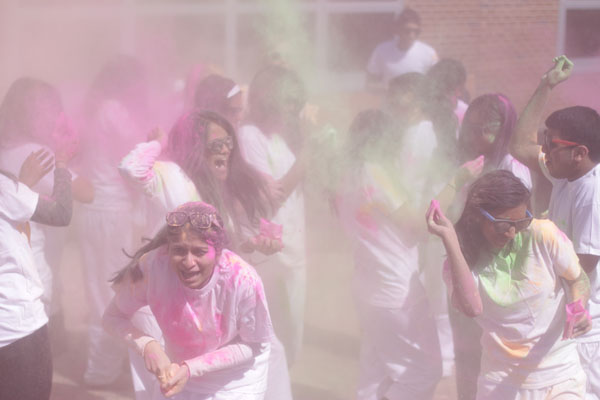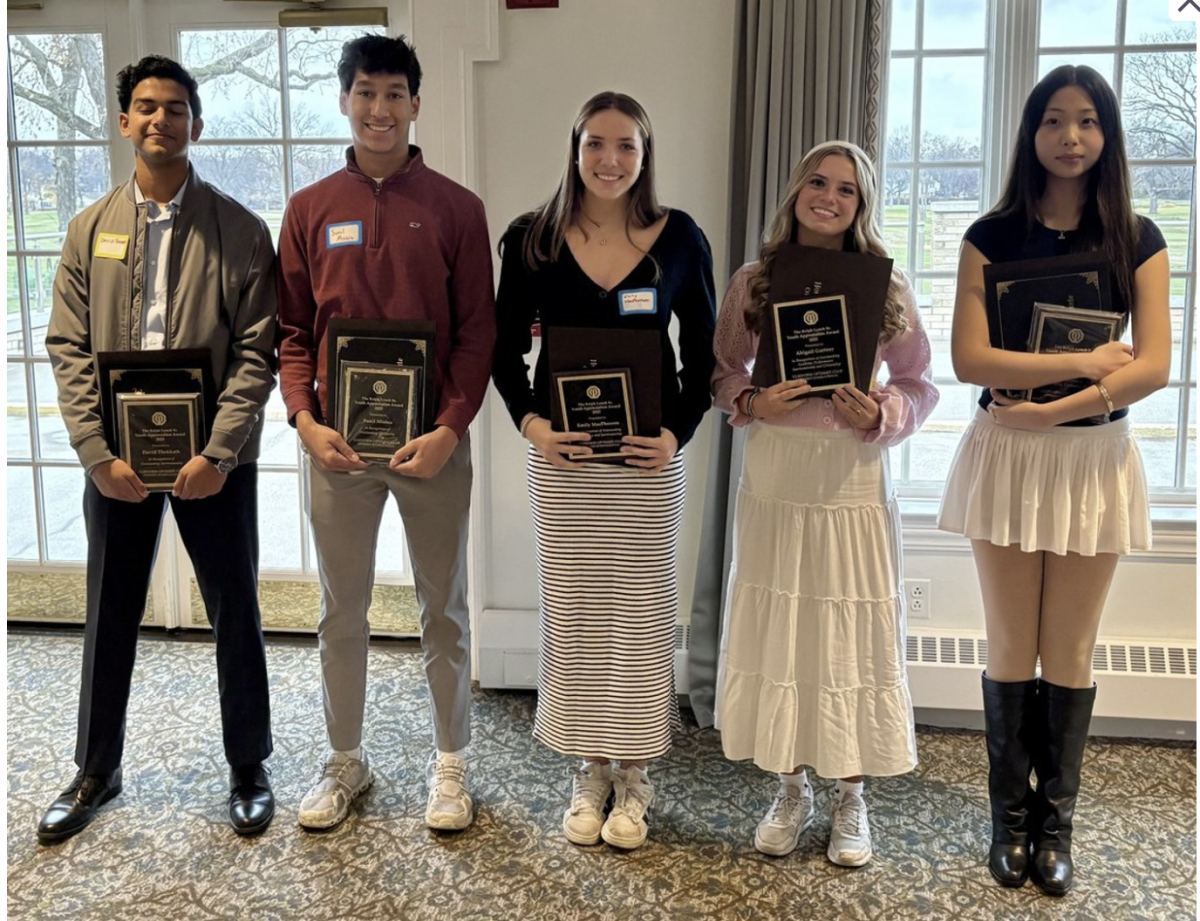Desi Club celebrated Holi, the Hindu spring festival of colors, at South in the ARC courtyard March 21.
According to junior Joris Powathil, the participants wore white clothing and threw colored powder at each other.
“Everybody dresses in white to signify that everybody is equal in the eyes of God,” Powathil said. “So, everybody just throws colors at each other and nobody knows who’s poor and who’s not because they’re all wearing white.”
According to Sejal Schullo, Desi Club sponsor, the white clothing is a tradition long embedded within the celebration of Holi due to India’s caste system.
“In India, there’s still a lot of influence from caste system, even though it’s illegal,” Schullo said. “And so everybody wears white on that day so you can’t tell from outward appearance what socioeconomic group a person is because everybody is wearing the same color. And it’s not fancy; it’s just plain white clothing.”
According to Schullo, Holi is the Hindu celebration of the coming of spring as well as the god Krishna, who is an avatar of Vishnu.
“It is really a celebration of good versus evil,” Schullo said. “It’s also a celebration of kind of re-birth and a regeneration of good things that come with the spring: the flowers, the trees [and] the fertility of things.”
According to Schullo, Holi is traditionally celebrated with religious observance, dancing, singing, bonfires and the throwing of colored powder and water.
Schullo said the members of Desi Club have a memorable tradition during the celebration to cover Schullo in powder as well.
“After they get all powdered up and they get caked with the different rainbow colors, they decide to kind of come in and do a group hug with me in the center which makes [a] colorful mess,” Schullo said. “And it’s one of our last events, especially for the seniors who are leaving, and so it’s a nice little moment of their gratitude as well as their excitement for being part of this organization and doing something that is both fun and educational.”
Though Holi is typically a Hindu festival, the majority of students in Desi Club who celebrated it are South Indian Christians, according to Powathil.
“Our Desi Club only had three members that were actually Hindu,” Powathil said. “However, it was a great cultural experience for every single one of us. We got to learn about the significance behind Holi.”
According to Schullo, celebrating Holi achieved the goal of Desi Club to increase awareness of Indian culture at South.
Schullo said that Desi Club thought about the idea of allowing everyone at South to participate in the event when they began planning, but ended up being held only for Desi Club members because they wanted the participants to understand the culture and significance behind Holi.
“It’s a fun activity and we don’t want people to just do it to do it,” Schullo said. “We want them to understand the meaning behind it. We want them to understand why it is they’re doing it, what the holiday is, what it signifies in terms of social and political issues in India.”








